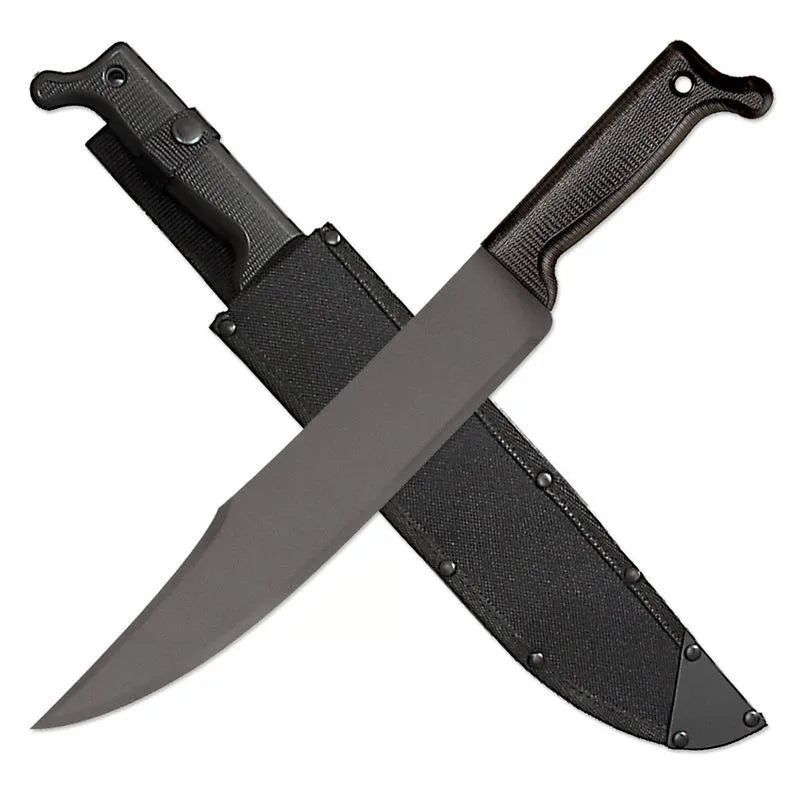
Why is it Unsafe to Use a Dull Knife?
A knife is always part of a kitchen arsenal; however, a blunt one will only cause more harm than good. It could be instinctive to think that you can safely use a dull knife because it's less sharp; yet, it is just the opposite. Let's see Why is it unsafe to use a dull knife!
Increased Risk Of Slipping
When the knife is dull, it will not hold and cut through the ingredients adequately. Rather than slicing well, it takes more force to make simple cuts. Such pressure can push it off its course, hence making the knife even more violent to your hands or fingers or some parts of your body.
Example: Cutting a Tomato
Imagine trying to cut a tomato with a common knife. Instead of slicing it effortlessly under the skin, it will be the knife sliding under your skin, the possibility of which may make your hand slip and accidentally touch the blade. More force will also have a greater chance of losing control, which can lead to sudden slips and cuts.
A versatile pocket folding knife is perfect for everyday carry and outdoor adventures. Learn more about its practicality and features at Knives Hives.
More Force, More Risk
If it is sharp, the blade itself does most of the work. If it's a dull knife, then you need a lot more force, and from there, the risk to you increases greatly. This could cause you to slip suddenly and unexpectedly if the blade finally breaks through in an unexpected direction. The unpredictability of knife behavior brings about a hazardous situation, so an injury that might have occurred already has a good chance of happening.
Why More Force is Hazardous
Using extra force makes the knife more cumbersome and creates higher pressure on your wrists and hands. Worst case scenario: the knife does slip, and the force carried can easily convert a near-miss into a harsh cut or hurt.
If you're into hunting, a skinner knife is essential for field dressing. Check out the best options for skinning at Knives Hives.
Poorly Cut Food and Cooking Frustrations
A dull knife places you at risk. More than that, however, a dull knife makes the effort so frustrating as you end up spending lots of time chopping, slicing, or dicing ingredients. It leads to poor cuts and rarely cooks evenly so all this adds to your frustration and makes cooking less enjoyable.
Uneven cuts equal uneven cooking
When the ingredients are not sliced evenly, they will not cook similarly. That can ruin the taste and texture of your dishes. For example, if your vegetables are not cut into the same shape, parts could burn while others undercooked. This affects the quality of your final dish but also raises food safety concerns as some parts might not be cooked enough to be consumed.
For a robust and stylish tool, the Damascus kukri knife offers exceptional performance. Browse this unique blade style at Knives Hives.
Damage over Long-Term Period
A dull knife also shortens its life span. Forcing a dull blade through tough ingredients puts extra stress on the blade and handle; thus, they will break or wear out more quickly. Also, not keeping the edge sharp means you will eventually lose money in the long run for repairs or replacements.
Sharpening Protects Your Investment
Sharpening your knives always helps the knives maintain their good condition as well as provides the sharpener with a few extra years of life. The small effort will help you avoid the danger that surrounds such situations, saving you from constantly purchasing a new knife.
A bone handle knife not only provides a classic look but also enhances grip. Find the best bone-handled knives at Knives Hives.
How to Keep Your Knife Sharp
Once you understand why is it unsafe to use a dull knife, you should learn how to prevent your knife from going dull. Here are some fast tips on maintaining a sharp blade:
- Sharpen Often: For maintenance, sharpen the blade using a sharpening stone or honing steel.
- Store Properly: Store the knives in a block or in a strip so that the blade will be protected.
- Use the Correct Cutting Surface: Avoid using glass or stone cutting boards as they are sure to dull the blade much sooner. Use wooden or plastic cutting boards instead.
The Bottom Line
Why is it unsafe to use a dull knife? Why are dull knives more dangerous? A sharp knife is a safer knife. Unsurprisingly, dull knives contribute to injuries from slippage, demand more force, and are frustrating in the kitchen compared to sharp knives. So keeping your knives sharp will both safeguard you and the finished meal. Think of a little maintenance as going a long way toward your safety while making meal prep easier.
At Knives Hives, we offer a wide selection of quality knives, including pocket knives, skinning knives, and more to suit every need!








